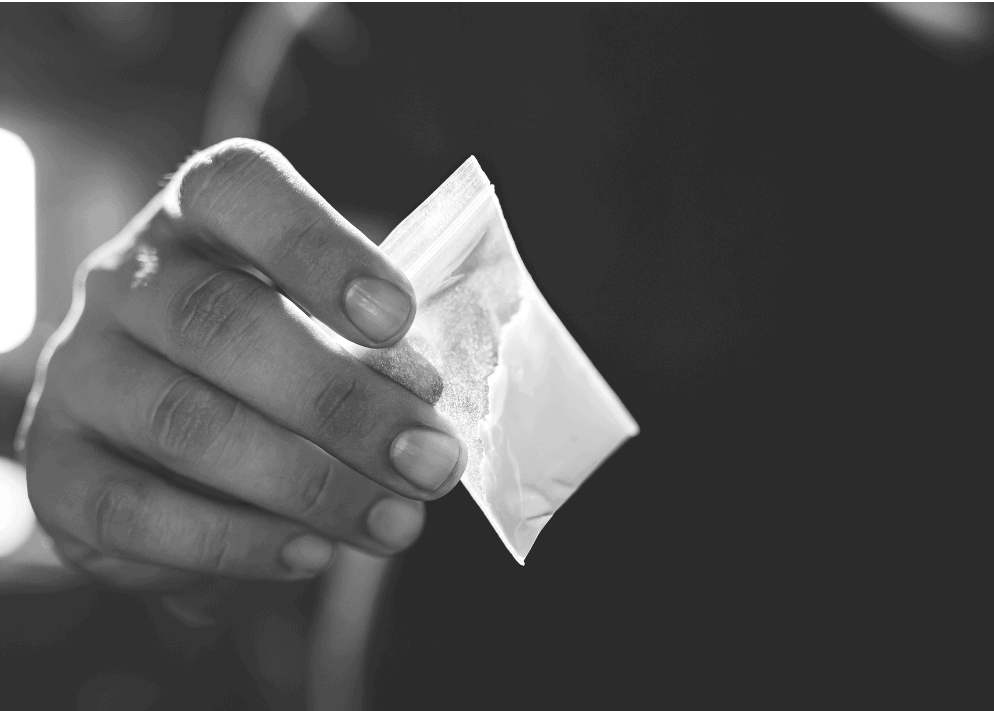No matter which type of drug you’re using, stimulant abuse is dangerous. The short-term or long-term use of stimulants can have a huge effect on the body. Whether you’ve just tried it once, or you’ve developed an addiction, you’re putting your body at risk. However, those who engage in high frequency, high dose usage of these types of drugs are at a higher risk than others. That begs the question, is meth or cocaine more addictive? Which one will cause dependency first, and overall: which one is more dangerous?
The Dangers of Meth
Meth or methamphetamine is a stimulant that can be smoked, snorted, ingested, or injected. It provides users with an intense high and a low low, resulting in a crashing period that causes deep depression and even suicidal thoughts. During the high period, users will feel like they’re on top of the world and capable of anything. This ideology on its own can be destructive and dangerous.
Not only that, but meth also causes short and long-term damage to the body. With some of the deadliest side effects, meth makes the top of the list for the most dangerous recreational drug.
The Dangers of Cocaine
Cocaine, like meth, is a stimulant. It causes the same intense highs and deep lows that meth does. People who use cocaine often experience a reduced appetite, a decreased need for sleep, and increased energy. Those who use cocaine also tend to binge, using dose after dose in order to keep their high going. This will only result in an eventual crash that, like meth, can cause depression and fatigue.
Cocaine also has lasting effects on the body, such as heart and lung damage. While it’s not considered to be as dangerous as methamphetamine, it’s close.
Can You Become Addicted to Cocaine or Meth After One Use?
While this may seem like a good way to measure the addictive nature of a drug, it’s hard to establish whether or not someone can truly become addicted to something after only one use. When it comes to physical addiction or dependence, the answer is no. However, a person can crave both meth and cocaine after one use, wishing to use it again. This is referred to as a psychological addiction.
How fast someone becomes addicted to a drug, whether it be cocaine or meth, also depends on their risk. Those who have previous experience with addiction or a parent who struggled with addiction may be at higher risk for developing an addiction over a shorter period of time.
Which One is More Addictive?
It’s hard to tell which drug is more addictive than the other, especially because they have very similar effects on the brain and body. Because they’re both stimulants, they excite the brain, causing a high that doesn’t last very long. The body then crashes, craving the high again. This repeats on a cycle until an addiction forms, with either drug.
Because meth causes a more extreme high that alters the mind in a more severe, intense way, it’s likely that meth is more addictive than cocaine. However, it depends on the person, their preference, and which drug they have access to.
Meth Vs. Crack Cocaine
Crack cocaine is cocaine that has been processed to form small, rock-like chunks that can be smoked. Like methamphetamine, crack cocaine produces a rapid and intense high, but it does so by blocking the reuptake of dopamine, causing a buildup of the neurotransmitter in the brain. This leads to feelings of euphoria and increased energy, but the effects are short-lived and can quickly lead to addiction. Long-term use of crack cocaine can cause damage to the heart, lungs, and other organs and increases the risk of stroke.
Meth Withdrawals Vs. Cocaine Withdrawals
Withdrawal from methamphetamine can last longer than withdrawal from cocaine, with symptoms generally peaking within a few days and lasting for several weeks. Withdrawal symptoms from methamphetamine can include depression, anxiety, fatigue, increased appetite, and sleep disturbances. Some individuals may also experience severe symptoms, such as hallucinations and psychosis, which can last for several weeks.
Cocaine withdrawal symptoms tend to be more acute and can start within hours after the last use. Symptoms of cocaine withdrawal may include agitation, restlessness, fatigue, depression, and intense cravings for the drug. Individuals may also experience physical symptoms like chills, tremors, and muscle pain.
Seek Treatment for Stimulant Abuse
If you or someone you love is addicted to stimulants like cocaine or meth, it’s time to seek help. Treatment for stimulant abuse is right around the corner. To learn more about our programs and how we can help your or a loved one succeed, call Asheville Recovery Center today to learn how we can help. We’re eager to answer any questions you may have about our treatment programs.








